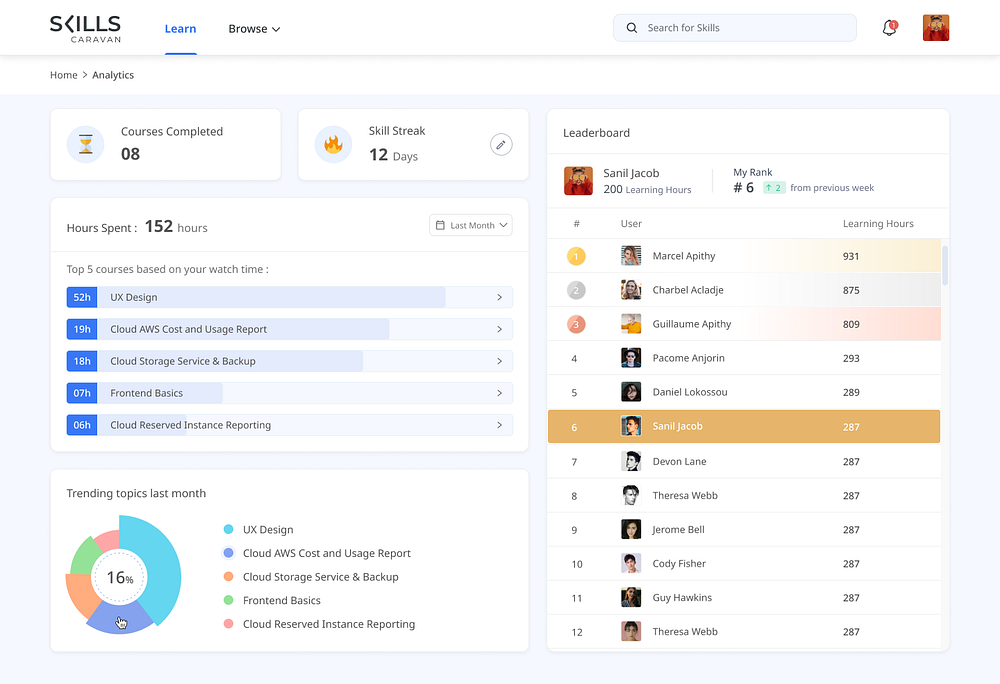How a Custom LMS Can Boost Employee Engagement and Training Effectiveness
In today’s rapidly evolving work environment, organizations are constantly seeking ways to improve employee engagement and training effectiveness. Traditional training methods often fall short, leaving employees uninspired and disconnected from their learning paths. Enter the Custom Learning Management System (LMS) — a powerful tool that not only modernizes training but also significantly boosts employee motivation and performance.

What is a Custom LMS?
A Custom LMS is a tailor-made digital platform designed specifically to meet the unique training and development needs of an organization. Unlike off-the-shelf LMS solutions, custom LMS platforms offer full flexibility in design, content, user experience, and integration with other systems. These personalized systems ensure that the training experience is aligned with a company’s goals, culture, and workflow.
Why Employee Engagement and Training Effectiveness Matter
Before diving into the benefits of a custom LMS, it’s essential to understand the relationship between employee engagement and training effectiveness. Engaged employees are more productive, loyal, and committed to their organization. Effective training plays a crucial role in achieving this engagement by providing employees with the skills and confidence they need to succeed.
When training is ineffective or irrelevant, employees feel undervalued and disconnected — leading to decreased morale, lower performance, and higher turnover. Therefore, an impactful training strategy directly contributes to employee satisfaction and retention.
1. Personalized Learning Paths Increase Engagement
One of the key features of a custom LMS is the ability to create personalized learning journeys. Employees are no longer forced into generic training modules that don’t match their job roles or career aspirations. With a custom LMS, training can be tailored based on individual skills, goals, and performance levels.
Personalization makes employees feel valued and supported. This relevance in learning boosts employee engagement and training effectiveness, ensuring learners stay motivated and involved throughout their training programs.
2. Gamification Encourages Active Participation
Gamification is a popular LMS feature that enhances learning by adding game-like elements such as points, badges, leaderboards, and rewards. A custom LMS allows organizations to design gamification features that resonate with their workforce’s culture and interests.
When employees are rewarded for learning progress and achievements, they become more invested in the process. This strategy not only makes training enjoyable but also dramatically improves employee engagement and training effectiveness over time.
3. Real-Time Feedback and Assessments Enhance Learning
Timely feedback is vital for effective learning. A custom LMS can be built with real-time assessment tools that provide immediate insights into employee performance. Managers can track progress, identify skill gaps, and offer targeted support when necessary.
This approach helps employees feel guided and appreciated, fostering a sense of continuous improvement. As a result, employee engagement and training effectiveness are naturally enhanced.
4. Integration with Other HR Tools Improves Efficiency
A major benefit of a custom LMS is seamless integration with existing HR systems such as performance management, onboarding, and payroll. These integrations create a smooth, unified experience for both HR teams and employees.
When training is well-coordinated with performance metrics and career development plans, employees see a clear link between their learning and career growth. This alignment reinforces the importance of training, boosting employee engagement and training effectiveness.
5. On-Demand and Mobile Learning Provide Flexibility
Modern employees expect training to be as convenient as any other digital experience. A custom LMS supports on-demand, mobile-friendly learning — allowing employees to access content anytime, anywhere.
This flexibility respects employees’ time and learning preferences, resulting in better participation and knowledge retention. When training fits into employees’ lives instead of disrupting them, employee engagement and training effectiveness naturally increase.
6. Analytics and Reporting Drive Continuous Improvement
Data-driven decision-making is essential for improving training strategies. A custom LMS includes detailed analytics and reporting tools that track learner engagement, completion rates, assessment scores, and more.
With these insights, organizations can continuously refine training programs to meet evolving needs. Knowing that their feedback and progress are being monitored and acted upon further boosts employee engagement and training effectiveness.
7. Scalability and Consistency Across the Organization
For growing businesses or organizations with multiple locations, consistency in training is a challenge. A custom LMS ensures that every employee receives the same quality training experience, regardless of where they are located.
At the same time, the system can scale to support thousands of users while maintaining performance and customization. This balance between scale and personalization is a significant factor in driving employee engagement and training effectiveness across the board.
Conclusion
In a time where talent retention and development are top priorities, investing in a custom LMS can be a game-changer. By offering personalized, flexible, and engaging learning experiences, a custom LMS directly contributes to increased employee engagement and training effectiveness.
Organizations that prioritize these elements not only build a more skilled and motivated workforce but also create a culture of continuous learning and improvement. In the long run, the benefits of a custom LMS go beyond training — they extend to higher productivity, stronger teams, and sustainable business success.

Comments
Post a Comment